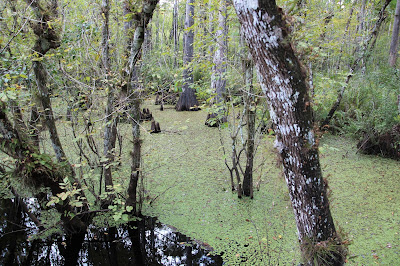 |
| Remains of a human sacrifice found in Argentina from 1500s |
I have often heard people say that the story of Abraham being asked to sacrifice his son is horrific, so horrific that maybe it shouldn’t be read at all. It is meant to be horrific. The point is that God asks the unthinkable of Abraham, but more importantly Abraham trusts God and goes along the path that makes absolutely no sense to him at the time.
Human sacrifice was actually very common at the time in other cultures, so it would not have been a total surprise to Abraham that God would ask this of him, but what is most important is that ultimately God is showing us that human sacrifice is not acceptable to him. God does not want human sacrifice, ever.
Not only was it horrific that Abraham should be asked to sacrifice his child, but it was also through this only child that God had promised him many offspring. So, nothing at all made sense. Abraham suddenly finds himself in a situation of complete darkness, where nothing was right, nothing made sense, but Abraham trusts God and then everything changes at the last second. God ‘put Abraham to the test’ not in the sense of seeing if he was good enough—God knew how much faith Abraham had to begin with—but because God knew that Abraham had great faith and he wanted to stretch that faith to its full capacity.
An athlete won’t reach their full potential unless they are pushed to the limit. The trainer will often see more potential in them than they are aware of themselves and if they are a good trainer, they will push them so that they will reach that limit. Sometimes God does the same with us. He knows what we are capable of, more than we do ourselves and sometimes He stretches, or pushes us to the limit, because God wants us to reach our full potential as human beings.
Because Abraham was willing to do anything that God asked and because he showed his remarkable trust in and obedience to God, the Lord said that He would bless him greatly:
“I will shower blessings on you, I will make your descendants as many as the stars of heaven and the grains of sand on the seashore.”
Sometimes when we pray for a situation to get better, it gets worse? Have you ever noticed that? There is a temptation to panic and not pray any more, but if we believe that God is listening to us and helping us, then we persevere in prayer and we try to trust that the Lord will bring the best out of the situation, even though it often doesn’t make sense to us. That is one of the demands of faith and it is not easy.
When God sent Moses to confront Pharaoh and demand that he should let the Hebrew people go free, Pharaoh not only refused, but he made life much more difficult for them. He increased their suffering. So the people came complaining to Moses asking why he had to open his mouth at all, as they were now suffering more. Now he had Pharaoh angry with him and the people angry with him. Moses turned to God in a panic, even though He was doing what God wanted him to do, why was God allowing the situation to get worse.
“Why have you brought trouble on this people? Is this why you sent me? Ever since I went to Pharaoh to speak in your name, he has brought trouble on this people and You have not delivered your people in any way.” (Ex 5:22)
God did bring about what He said He would do, but it took a while and life became more difficult first. The way God answers prayers is not always to our liking.
2000 years later God sends his Son, who takes on human flesh as Jesus and allows him to be sacrificed for the human race. The Father allowed his Son to be sacrificed. He did go through with it. It says in the second reading that because Jesus went through with it, the Father would not refuse him anything. That is why we can have such confidence when we pray to Jesus. It says in the second reading that Jesus now intercedes for us before the Father in heaven. If Jesus, the Son of God, is interceding for us before the Father, then what could we possibly be afraid of as long as we remain open to God? Not only that, but we also have Our Lady interceding for us. Is Jesus going to refuse his mother anything? Is the Father going to refuse Jesus anything? And these are the ones who are interceding for us.
In the Gospel, Peter, James and John are granted this extraordinary vision of Jesus, in all his glory. Why were they given this privilege when none of the others were? It seems they were being given a more intense training than the others. They were also with Jesus when He raised the little girl—Jairus’ daughter—from the dead and they were with him in Gethsemane. This vision happened just before the Passion, when Jesus would be tortured and killed before their eyes. Peter, James and John would be with him in the Garden of Gethsemane watching him fall apart with fear. They were going to need great strength not to despair themselves, as this would be so disillusioning for them, but what is especially note-worthy, is that after the vision was over they suddenly found themselves in a cloud where they could not see anything. Only then did they hear the voice of the Father speaking to them:
“This is my Son the Beloved. Listen to him.”
God spoke to them when they were in a cloud. Have you ever been on a mountain when a cloud suddenly descended? It’s quite frightening because you cannot see anything. You just have to stop and wait. Sometimes it is only when we are in a ‘cloud’ or darkness/confusion that God will speak to us most powerfully. When we cannot see the way forward and we cannot get any clarity on what to do, then God will show us what the next step is, but often He will only show us the next step, not the whole path ahead. This brings us back to the need to trust that God knows what God is doing, even when He leaves us in the dark.
Think of when someone dies, especially a young person. We are left with so many questions and so few answers. We don’t understand, but God asks us to trust. God asked Abraham to trust because God knew he would be able to, even though He seemed to be asking the impossible and God allowed the three Apostles to see Jesus as the Son of God in his blinding glory, to help them believe. We are only shown one step at a time, if even that. If God doesn’t show us the path it is because we don’t need to see it, only the next step.
Finally, think of what God the Father said to the Apostles and what He is saying to us, ‘This is my Son… listen to him.’ Of all the noise and information that is flying around us, listen to Jesus. When you are distressed, or anxious because of what is going on, listen to Jesus. If God the Father is speaking to us then what He is saying to us must be very important.
“This is my Son the Beloved. Listen to him.”












